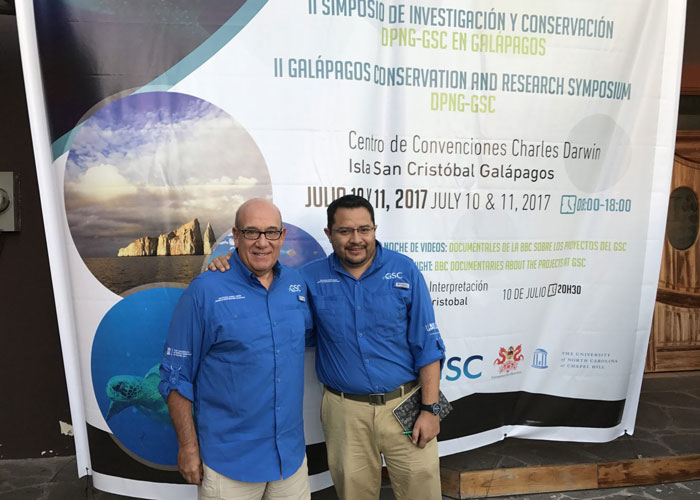First Ever Maps of AgroEcosystems in Galapagos by UNC and USFQ Researchers

What percentage of land cover is dominated by invasive plants in the highlands of the four inhabited Galapagos Islands? It´s 28.5% according to new maps generated by an international research team based between the UNC at Chapel Hill, USFQ in Quito and GSC.
Summary of PI Amanda Thompson’s study on immune development and gut microbiome in Galapagos

GSC Researcher Amanda Thompson, based at the University of North Carolina at Chapel Hill, along with three other collaborators, published an article about human health in Galapagos in the American Journal of Human Biology.
Proyecto Familias Saludables San Cristóbal

En los últimos dos años, llevamos a cabo el Estudio Familias Saludables en San Cristóbal en colaboración con USFQ y financiado por los Institutos Nacionales de Salud. En este proyecto, examinamos cómo los ambientes de agua y alimentos de las Galápagos impactan la salud humana. Esperamos identificar estrategias para intervenir para mejorar la salud y el bienestar de los residentes de la isla.
Genoma de hierbas y ambientes. Un enfoque basado en una hipótesis / descubrimiento que conecta el genoma con el fenoma del hábito y el comportamiento de las plantas en entornos naturales

Caracterizar los genomas de un conjunto de pastos fenotípicamente diversos, pero monofiléticos.
El GSC desempeña un papel integral en la Comisión Interinstitucional de Galápagos para el Consumo Responsable de Plásticos

El Consejo de Gobierno del Régimen Especial de Galápagos votó para implementar las recomendaciones de un estudio realizado sobre el uso de plásticos desechables en Galápagos.
GSC plays an integral role in the Galapagos Inter-Institutional Commission for Responsible Plastics Use

Beginning in 2012, the plenary of the Galapagos Governing Council (CGREG), the highest government instance in Galapagos, voted to implement the recommendations from a study conducted by a consultant from the Galapagos National Park Directorate (GNPD) on the use of disposable plastics in Galapagos.
Healthy Families Study

Over the past two years, we have been conducting the Healthy Families Study in San Cristobal in collaboration with USFQ and funded by the National Institutes of health. In this project, we examine how the water and food environments of the Galapagos impact human health.
Grass Genomes X Environments: A hypothesis/discovery-based approach connecting genome with the phenome of plant habit and behavior in natural settings

We characterize the genomes of a phenotypically diverse, yet monophyletic, set of grasses from Ecuador.
“Steve Walsh NASA Grant on Galapagos Islands”

NASA Grant on Global Islands
• Stephen J. Walsh, Richard E. Bilsborrow, Laura Brewington, Yang Shao, Hernando Mattei, Francisco Laso, Phil Page, Brian Frizzelle (2017-2020), Synthesis of Drivers, Patterns, and Trajectories of LCLUC in Island Ecosystems, National Aeronautics and Space Administration (NASA).
UNC Galapagos Research Retreats 2018-2019

The first Galapagos Research Retreat was held at the Carolina Inn during fall 2018. Carlos Mena, Co-Director of the Galapagos Science Center, accompanied the UNC Galapagos Leadership Team to further engage and recruit UNC scientists to the Galapagos Initiative.


